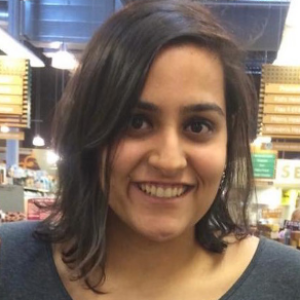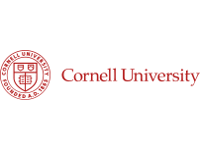Mentor: Tanya Berry
Mentor's Responsibility for PARADIM: Graduate Student JHU (3rd yr)
REU intern: Xin (Jason) Zhang

Tanya Berry received her B.S. in chemistry in 2015 from the University of California, Davis. While in UC Davis she pursued undergraduate research under Prof. Susan Kauzlarich in the synthesis of germanium nanoparticles using amine ligands. After graduation she started working in the Max Planck Institute for Chemical Physics of Solids under Prof. Claudia Felser, where she researched on half Heusler thermoelectrics for 2 years. She is now a PhD candidate in Chemistry under the guidance of Prof. Tyrel M. McQueen. She is interested in magnetic and topological materials and utilizes chemical principles in designing new and exotic quantum materials.
Project Title:
Untangling the effect of magnetism on a double Dirac material
Project Description:
Double Dirac fermions are particularly interesting because the highest degeneracy protected by point group symmetries for nonlinear structures (such as molecules or most solids) is six, e.g. the t2g d-orbital states in an octahedral crystal field. Utilizing space group symmetries and intrinsic materials properties, we have designed a non-magnetic parent material and its magnetic derivative to understand the effect of magnetism on the over all degeneracies within the material.
Research question that defines the REU student's project:
What are double Dirac materials? What is effect of magnetism on a candidate double Dirac material?
Project plan/research task to answer the research question:
The REU will work remotely on this project using various statistical and analysis software programs to process and analyze experimental data on two double-Dirac materials, in the hopes of understanding the band structures and fermionic physics.
List of tasks to be performed by the REU student and tasks to be performed by the mentor to answer the research questions:
In particular, the intern is analyzing the heat capacity data for this project and in doing so he is learning:
1) how utilize statistical and analysis software programs to process and analyze experimental data
2) gaining fundamental understanding of heat capacity analysis and the physical quantities that can be derived
3) learning basics of solid state chemistry to better understand this project
4) understanding the design principles used to derive such materials
5) he will shortly also work with external collaborators to have exchange results
We hold meetings about three to four times a week for a few hours via Zoom. We also share information via email and sometimes via text messaging if necessary. I usually direct him to resources that I find useful and also draw models on Zoom meeting to help explain some concepts better.







